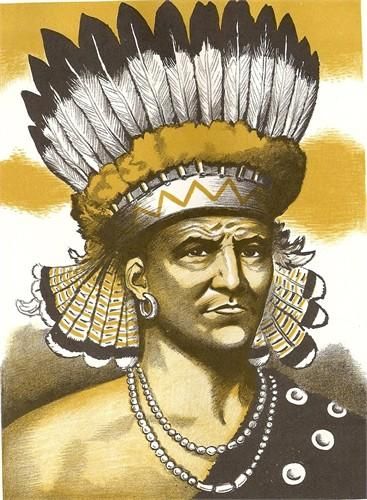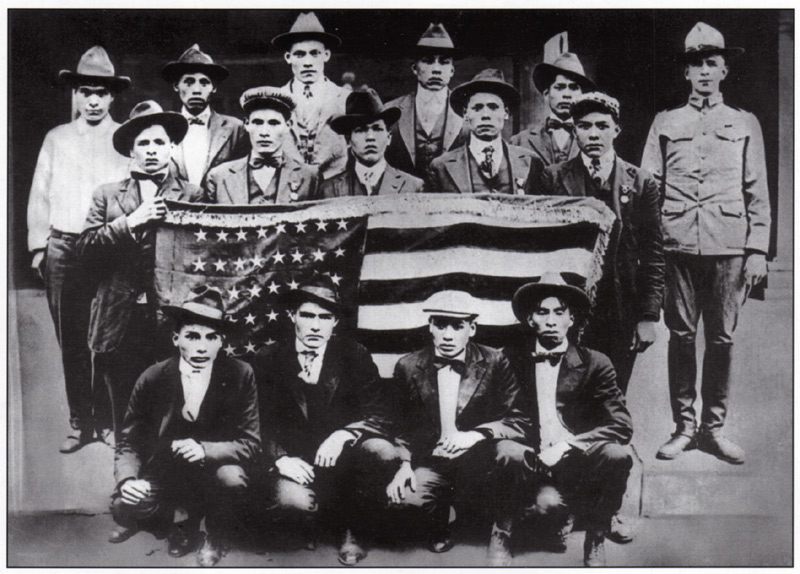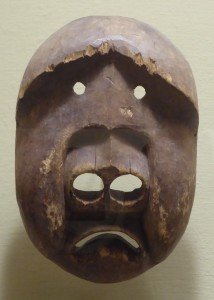Personal Names Among the Central Plains Tribes

For most people today, personal names consist of two basic parts: (1) a surname or last name which is the same as the father’s surname (or the husband’s surname for some women) and (2) a given name or first name which is generally given at birth. In general, people (particularly men) keep the same name for life. For American Indians, there were no surnames and it was common to change names.
The Central Plains is that portion of the Great Plains which lies south of the South Dakota-Nebraska border and north of the Arkansas River. It includes Nebraska, Iowa, Kansas, Missouri, southeastern Wyoming, and western Colorado. At the time when the Europeans began their invasion of this area it was the home to Indian nations such as the Omaha, Otoe and Missouria, Kansa, Osage, Wichita, and Pawnee. Briefly described below are the naming practices of some of the Central Plains tribes.
Omaha
Among the Omaha, the birth of a child is seen as more than an addition to the clan and tribe. Ethnographers Alice Fletcher and Francis La Flesche, in their 1911 book The Omaha Tribe, report that a child is
“a living being coming forth into the universe, whose advent must be ceremonially announced in order to assure it an accepted place among the already existing forms.”
Four days after birth, certain symbols would be placed on the child. Eight days after birth, a ceremony would be held to introduce the child to the world.
At the fourth day of life, the child was given a “baby name” which was retained for the first 3-4 years of life. The “baby name” was then thrown away during the Turning the Child Ceremony in which the child received new moccasins and a clan name. In his book Two Crows Denies it: A History of Controversy in Omaha Sociology, R.H. Barnes reports:
“personal names could be said to be on loan for the lifetime of the bearer, reverting to the ‘name pool’ upon his death or earlier for reassignment to a younger member.”
Omaha men frequently changed names during their lives and so it was possible for two men to share the same name at different times in their lives. It was not uncommon for a warrior to assume a new name after a successful war party. These “bravery” or “valor” names established a claim on public esteem.
The number of names available for Omaha women was relatively small and consequently there were many Omaha women with the same name. In addition, women’s names were not generally linked to clans and thus women in different clans could share the same name. According to R.H. Barnes:
“In contrast to the effects of male names, women’s names barely rescue their bearers from a general anonymity, neither conferring uniqueness nor indicating group membership.”
Like many other tribes, Omaha etiquette did not allow an individual to be addressed by a personal name. In a 1900 essay reprinted in Talking Back to Civilization: Indian Voices from the Progressive Era, Francis La Flesche recalls his education as a child regarding the elders:
“to use the proper and conventional term of relationship when speaking to another; and never to address any one by his personal name.”
Under no circumstances was it polite to ask a stranger’s name.
Otoe and Missouria
Among the Otoe and Missouria, the child was given a name on the fourth day after birth to insure a long and successful life. Each name included a song which became the property of the owner (the person who now carried the name). The naming ceremony was the initiation of the child into the clan. As an adult, an individual might take on a new name based on a vision or on some deed.
Otoe and Missouria children were also given nicknames by the mother’s brother. The nicknames, considered to be lucky names, were usually obscene and uncomplimentary and were intended to keep people from talking unkindly about others.
Kansa or Kaw
Among the Kansa or Kaw, the child was given a name shortly after birth. The name reflected both clan affiliation and birth order and was given in a ceremony conducted by a tattooed warrior. According to Garrick Bailey and Gloria Young, in their entry on the Kansa in the Handbook of North American Indians:
“Additional names referring to some deed of valor might be assumed during an individual’s life, but these did not replace the original clan name.”
Osage
Among the Osage, personal names were owned by the clan and these names reflected the spiritual associations of the clan. The naming of a child was an important ritual as it conferred upon the child both clan and tribal membership.
Wichita
Wichita children were often named prior to birth as a consequence of dreams of the mother or other relatives. Later in life, the child might be given another name based on some personal mannerism or a significant act. Names might be changed if the person was facing poor fortune or continued illness.
Pawnee
The Pawnee never address each other by personal name, but by a kinship term. This kinship term indicated the expected behavior and reinforced the relationships between people. Anthropologist Gene Weltfish, in her book The Lost Universe: Pawnee Life and Culture, writes:
“A personal name among the Pawnees was of an entirely different character from our own. It was an honorary title of an extremely personal nature.”
She goes on to report that
“the substance of the name was strictly private and reserved to oneself. The name was cited only on the most formal occasions and from the name itself it was not possible to deduce its private significance.”



